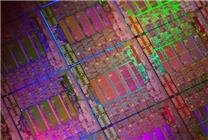TSMC’s 2nm Process Marks a Significant Milestone for Next-Generation CPUs
Summary:
- TSMC successfully trial-produced 12-inch 2nm chips, crucial for the advancement of next-generation computing.
- The new process enhances performance and reduces power consumption for AMD and Intel products.
- Intel’s outsourcing to TSMC reflects its strategy to maintain competitiveness amid technical challenges.
The semiconductor industry is abuzz with the latest development: TSMC has successfully initiated trial production of its cutting-edge 2nm chips at its P1 factory. This pivotal achievement signifies a key milestone in the journey toward the commercialization of advanced semiconductor technologies, expected to fundamentally reshape the computing landscape.
TSMC, a leader in semiconductor manufacturing, has previously announced plans to commence official mass production of 2nm chips within the year. The successful trials at Fab 22 P1 not only crystallize the company’s commitment to innovation but also lay the foundation for a new era of high-performance computing.
Performance Enhancements and Energy Efficiency
The upcoming 2nm process is set to provide significant benefits for next-generation products from industry giants like AMD. With increased performance capabilities and improved energy efficiency, these advancements are crucial as companies continue to face rising demands for powerful computing solutions, especially in the data center market. Enhanced capabilities mean that AMD can offer products that help maintain its competitive edge, meeting the needs of enterprise customers seeking efficiency and performance.
In addition to AMD, Intel is also set to leverage TSMC’s 2nm process for its Nova Lake series CPUs. This partnership comes as a result of Intel’s struggles with its internal 18A process yield, which has not met performance expectations. Seeking external support, Intel’s decision underscores a crucial shift in its manufacturing strategy aimed at ensuring customer satisfaction in a fiercely competitive marketplace.
A Strategic Pivot for Intel
Intel has made it clear that it is willing to outsource chip production when necessary, emphasizing a commitment to delivering high-quality products. This willingness to delegate manufacturing processes reflects an adaptive strategy, allowing Intel to focus on innovation while relying on TSMC’s advanced technology to fulfill its production needs.
Outsourcing the manufacturing of Nova Lake CPUs to TSMC allows Intel to mitigate risks associated with its internal production processes and maintain production timelines. This move not only highlights the growing reliance on third-party manufacturers for advanced chip production but also signifies a collaborative effort among top-tier tech companies to propel the semiconductor industry forward.
Importance for the Semiconductor Ecosystem
The initiation of TSMC’s 2nm chip production is more than just a technical achievement; it represents a turning point in the semiconductor ecosystem. As major players like AMD and Intel opt for TSMC’s capabilities, the implications for innovation and competition are profound. Companies can now enhance their product offerings, benefiting from cutting-edge technology that not only meets but exceeds consumer expectations.
TSMC’s 2nm chips promise to deliver unprecedented performance specifications and lower power consumption. This breakthrough aligns perfectly with the industry’s increasing focus on sustainability and energy efficiency, as companies seek to minimize their carbon footprint while still delivering formidable computing power.
Conclusion
In summary, TSMC’s successful trial production of 2nm chips heralds a new chapter in computing technology. The advantages of higher performance and lower power consumption will empower both AMD and Intel to stay ahead in a competitive environment defined by rapid advancements. As both companies navigate the challenges of semiconductor manufacturing, collaboration and innovation will remain essential. The industry eagerly anticipates official mass production, marking another feather in TSMC’s cap and a promising future for next-generation computing.
As the semiconductor landscape continues to evolve, the implications of these advancements will undoubtedly resonate across various sectors, promising exciting innovations in technology and efficiency. The successful adoption of TSMC’s 2nm process marks not only a technological revolution but also sets a new standard for the future of computing.









